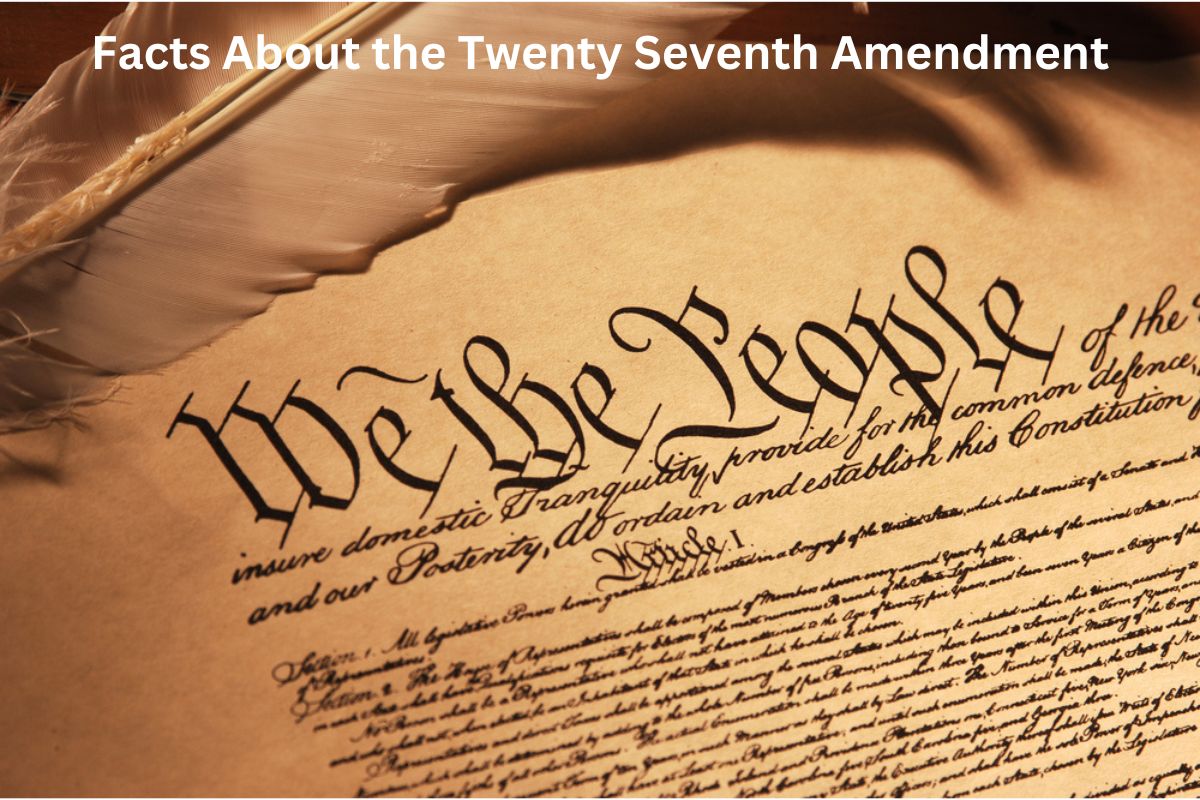The Twenty Seventh Amendment to the United States Constitution is a relatively recent addition to the document, having been ratified in 1992.
The amendment deals with congressional salaries, stating that any change to the compensation of members of Congress will not take effect until the next term of office begins.
Although originally proposed in 1789 as part of the Bill of Rights, the amendment was not ratified by the required number of states at the time.
It was rediscovered in 1982 by a college student, who helped to reignite interest in the amendment and eventually led to its ratification by the required 38 states.
The text of the amendment reads as follows:
“No law, varying the compensation for the services of the Senators and Representatives, shall take effect, until an election of Representatives shall have intervened.”
Despite its late addition to the Constitution, the Twenty Seventh Amendment has already been invoked once in American history, when Congress attempted to give itself a pay raise in 1992.
27th Amendment Facts
1. The amendment is the most recent amendment to the constitution
The Twenty Seventh Amendment to the United States Constitution was ratified on May 7, 1992, making it the most recent amendment to be added to the Constitution.
2. The amendment deals with congressional salaries
The Twenty Seventh Amendment deals with the salaries of members of Congress and specifies that any change to their compensation will not take effect until the beginning of the next term of office.
Also Read: Facts About the Twenty Sixth Amendment
This amendment was intended to prevent members of Congress from giving themselves immediate pay raises, and to ensure that any changes in compensation would have to be approved by the electorate in the next election cycle.
3. The amendment was originally proposed in 1789 as part of the Bill of Rights
The Twenty Seventh Amendment was one of twelve proposed amendments that were submitted to the states as part of the Bill of Rights in 1789.
However, it was not ratified by the required number of states at that time, so it was not included in the original Bill of Rights.
Also Read: 1st Amendment Facts
The first ten amendments of the Constitution were eventually ratified, but the proposed amendment dealing with congressional salaries remained unratified for over 200 years.
4. The amendment was rediscovered in 1982 by a college student
Gregory Watson was a college student at the University of Texas at Austin in 1982, when he wrote a paper for a government class arguing that the Twenty Seventh Amendment could still be ratified.
At the time, the amendment had been pending for over 200 years, and most legal scholars believed that it was no longer viable.
However, Watson’s research and advocacy helped to reignite interest in the amendment and eventually led to its ratification by the required number of states. Watson’s efforts to promote the amendment are widely credited with its eventual success.
5. Watson’s paper helped reignite interest in the amendment
After Watson wrote his paper on the topic, he began to lobby state legislatures to ratify the amendment. His efforts were successful, and several states began to consider the amendment anew.
Over time, more and more states ratified the amendment, until it was finally ratified by the required 38 states in 1992. Watson’s advocacy and efforts to promote the amendment are widely credited with its eventual success.
6. It was twenty years since the last amendment
The Twenty Seventh Amendment was the first amendment to be ratified since the Twenty Sixth Amendment in 1971, which lowered the voting age from 21 to 18.
This means that for more than 20 years, no new amendments were added to the Constitution. The ratification of the Twenty Seventh Amendment in 1992 marked the end of this long period without any constitutional amendments.
7.
The amendment was ratified by the required 38 states, but two states did not ratify it until the 1990s
The Twenty Seventh Amendment was ratified by the required 38 states, but two of those states (Kentucky and Wyoming) did not ratify it until the 1990s, more than 200 years after it was first proposed. Kentucky ratified the amendment in 1996, and Wyoming ratified it in 1992, the same year as the final ratification. The fact that it took so long for the amendment to be fully ratified by all states is a testament to the difficult process of amending the Constitution and the slow pace of change in the American political system.
8. The Twenty Seventh Amendment has only been invoked once in American history
The Twenty Seventh Amendment has only been invoked once in American history, in 1992, when Congress attempted to give itself a pay raise.
However, due to the amendment’s provision that changes in congressional compensation may not take effect until the next term of office, the pay raise was delayed until the next Congress was seated.
This provision ensures that members of Congress cannot simply vote themselves immediate pay increases, and that any changes to their compensation must be approved by the electorate in the next election cycle.
The successful invocation of the Twenty Seventh Amendment in 1992 demonstrated the importance of this provision and affirmed the amendment’s role in regulating congressional salaries.
9. The Twenty Seventh Amendment is the shortest of all the amendments to the Constitution
. The Twenty Seventh Amendment is the shortest of all the amendments to the Constitution, consisting of only 33 words.
Despite its brevity, the Twenty Seventh Amendment has an important role in regulating congressional salaries and ensuring that changes to compensation are subject to the approval of the electorate.
